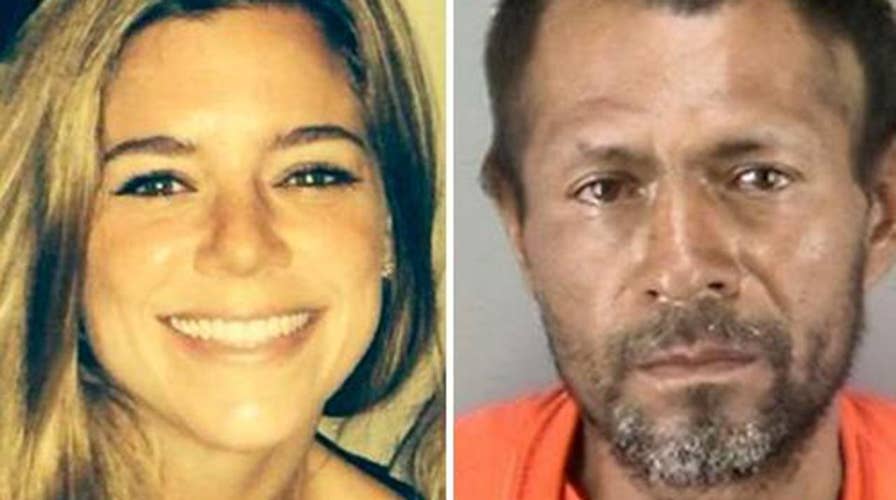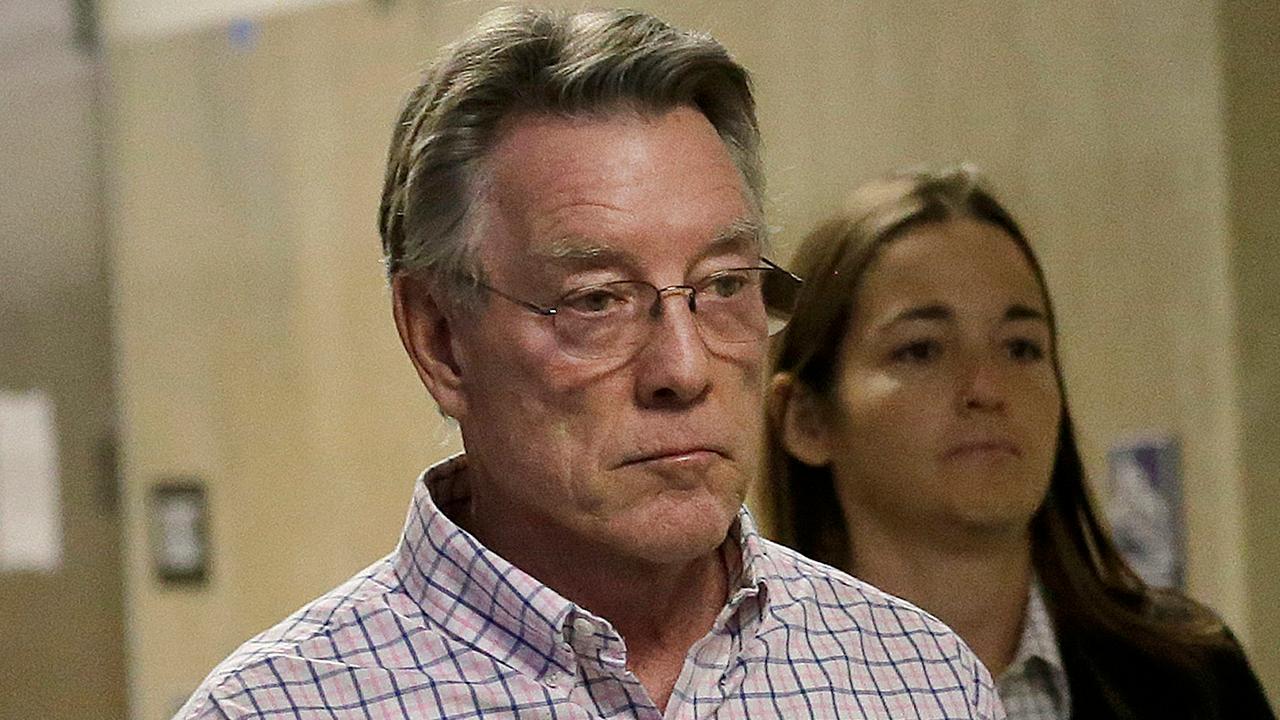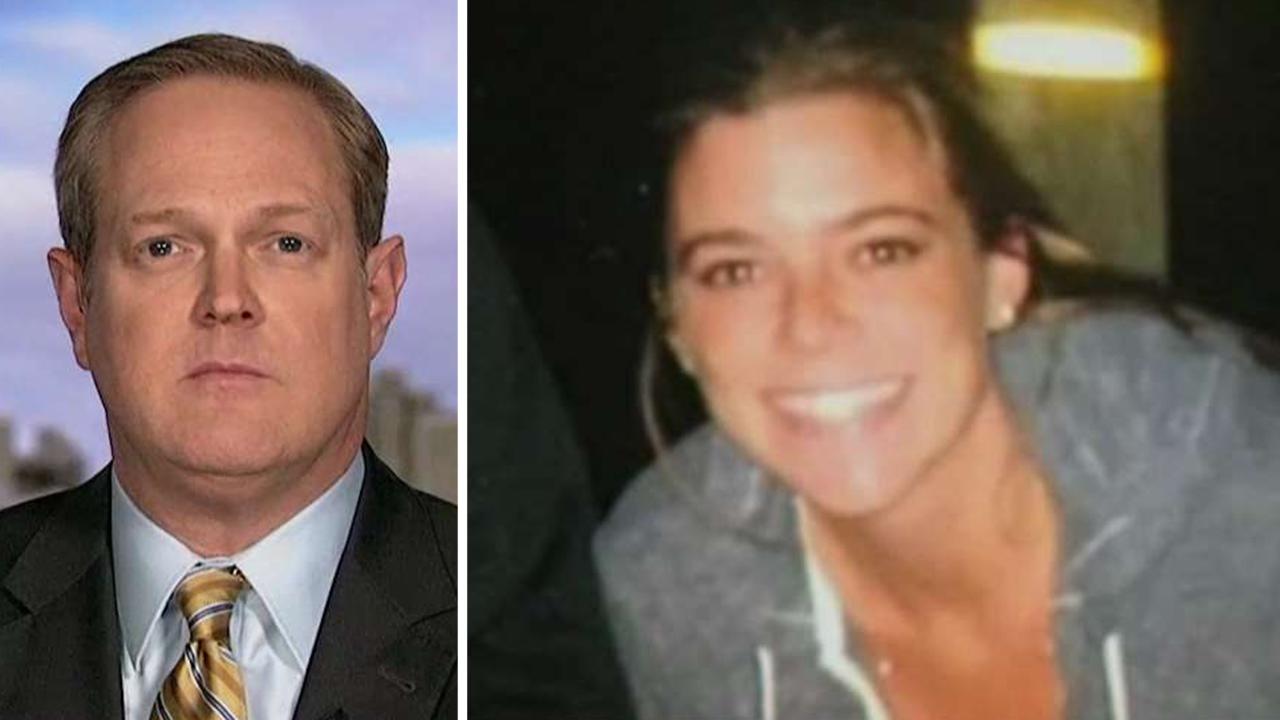The fifth day in the trial of the homeless illegal immigrant charged with killing Kate Steinle in San Francisco featured a police witness who explained the deadly bullet's trajectory, after a week of dramatic testimony.
The bullet that killed Steinle, whose death touched off a national debate about illegal immigration, ricocheted off the ground about 100 feet away before hitting her in the back, a retired police investigator testified Monday.
Former Officer John Evans said he and other investigators working on the case found a “strike mark” on the pier’s concrete surface four days after the shooting of Steinle by a Mexican national who had been deported five times.
Prosecutors have charged Jose Ines Garcia Zarate with murder, alleging he intended to point and shoot the gun at pedestrians on the pier on July 1, 2015.
Lawyers for Garcia Zarate say the ricochet shows the shooting was accidental.
Evans, who later retired from the department, said investigators had overlooked the strike mark on the night the 32-year-old Steinle was killed.
Authorities returned to the popular pier four days later, after the bullet was found to be partially flattened, indicating it had ricocheted, he said.
Evans also testified that inexperienced shooters are often shaky and fire in haste, causing the barrel of the gun to point downward. He called it “jerking the trigger.”
Defense lawyer Matt Gonzalez called that aspect of Evans’ analysis “highly speculative,” and the two wrangled over whether the shot had traveled straight, which would support the prosecution’s contention that Garcia Zarate aimed the gun before firing.
Evans conceded on cross-examination that he didn’t know exactly where Garcia Zarate was sitting when the gun fired nor did he know the specific spot where Steinle was standing when she was struck.
The retired officer said he drew a circle around blood spots and Steinle’s bloody clothes and another circle where witnesses placed Garcia Zarate. Using a laser pointer, Evans said he created a straight line between the two circles and through the strike mark.
Testimony on Thursday came from a government employee whose gun was stolen and used in the shooting.
Bureau of Land Management Agent John Woychowski told the jury he parked his car in what he thought was a safe location and left a black backpack, which had his loaded weapon inside, in the back seat. He said the car was locked and had an alarm and tinted windows.
When his family returned from dinner, he said his car’s windows were smashed and the backpack was gone.
He said he immediately reported the theft to 911 and his employer.
KATE STEINLE TRIAL FEATURES TESTIMONY FROM AGENT WHOSE STOLEN GUN WAS USED IN SHOOTING
The prosecution brought out a P239 weapon as evidence which Woychowski confirmed was his and he showed the jury how it worked, adding that he’d never had trouble with it.
Gonzalez cross-examined the agent, focusing primarily on why the agent had a loaded gun if he was off duty — and why he left it in the car.
Woychowski said he was required to keep his weapon loaded in a specific way and reiterated that he thought the car was safe. He said he always kept the backpack on him to protect his family. He added his employer had issued a locking device for the gun but he didn’t have it on him that day and that the gun did not have an external safety.
Previous days in court have included testimony from witnesses on the scene and responding officers who handled evidence and investigation.
Garcia Zarate, 54, admitted shooting Steinle, but says it was an accident.
Prosecutors and Gonzalez said the case boils down to whether Garcia Zarate pointed and fired the gun intentionally or the weapon accidentally discharged.
COURTROOM GASPS AS VIDEO OF KATE STEINLE’S SHOOTING IS PLAYED FOR JURY
Steinle’s father testified last week at the trial’s opening that before she died, she said to him: “Help me, Dad.”
The prosecution said those were her last words.
While Garcia Zarate’s immigration status is what brought the case into the national spotlight, jurors will not hear evidence about that, and it will not be a factor in the trial.
Steinle’s death became a signature issue for Donald Trump as he was running for president. He invoked the slaying in calling for the construction of a wall on the Mexican border and stepping up deportations and cracking down on illegal immigration.
San Francisco is a sanctuary city, with local law enforcement officials barred from cooperating with federal immigration authorities. President Trump has threatened to withhold federal funding to cities with similar immigration policies.
Fox News’ Michael Lundin in San Francisco and The Associated Press contributed to this report.





